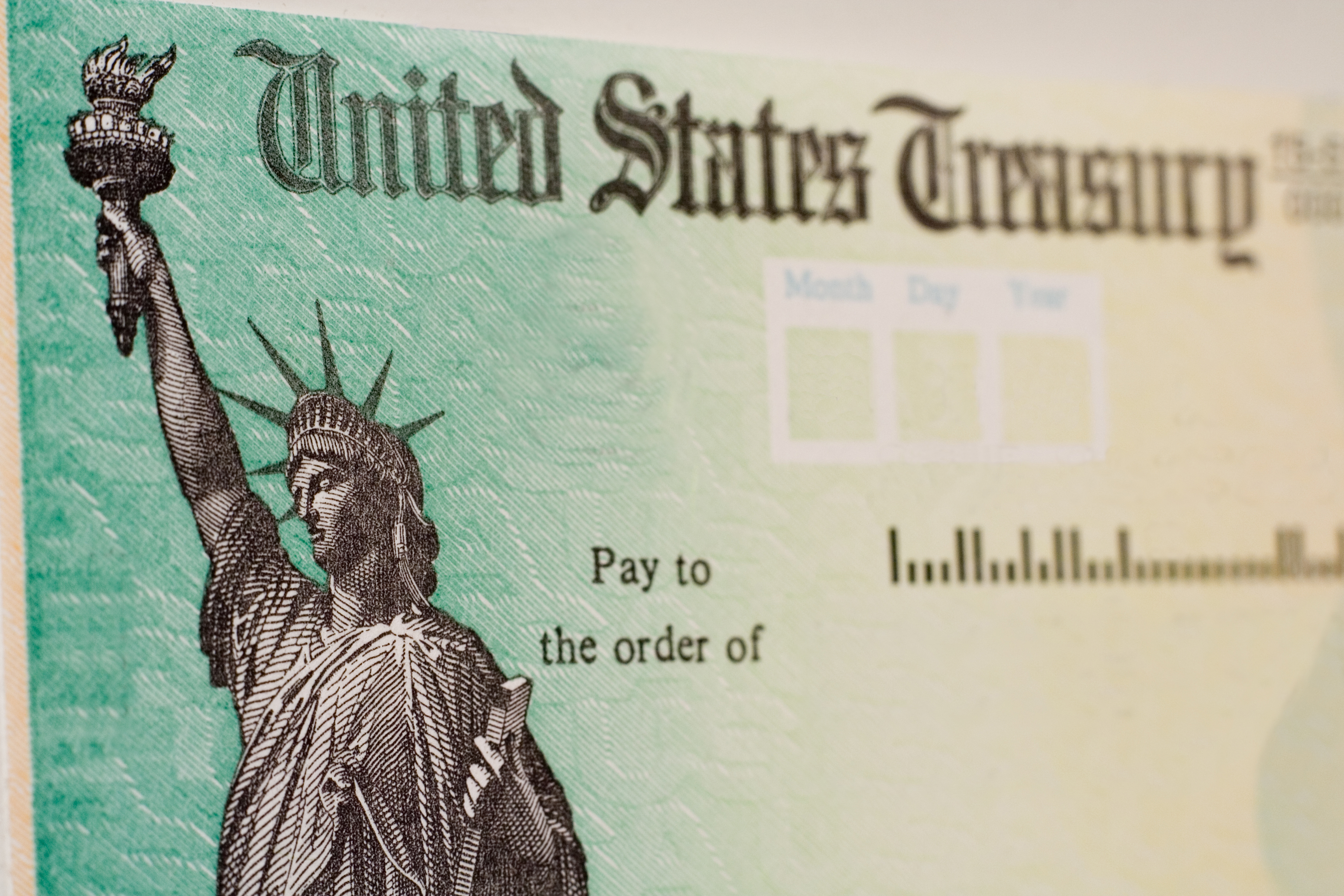Five Steps to Protect Against a Bond Bear Market
Interest rates simply can't go much lower -- and eventually must rise. Here's what to do.

Profit and prosper with the best of Kiplinger's advice on investing, taxes, retirement, personal finance and much more. Delivered daily. Enter your email in the box and click Sign Me Up.
You are now subscribed
Your newsletter sign-up was successful
Want to add more newsletters?

Delivered daily
Kiplinger Today
Profit and prosper with the best of Kiplinger's advice on investing, taxes, retirement, personal finance and much more delivered daily. Smart money moves start here.

Sent five days a week
Kiplinger A Step Ahead
Get practical help to make better financial decisions in your everyday life, from spending to savings on top deals.

Delivered daily
Kiplinger Closing Bell
Get today's biggest financial and investing headlines delivered to your inbox every day the U.S. stock market is open.

Sent twice a week
Kiplinger Adviser Intel
Financial pros across the country share best practices and fresh tactics to preserve and grow your wealth.

Delivered weekly
Kiplinger Tax Tips
Trim your federal and state tax bills with practical tax-planning and tax-cutting strategies.

Sent twice a week
Kiplinger Retirement Tips
Your twice-a-week guide to planning and enjoying a financially secure and richly rewarding retirement

Sent bimonthly.
Kiplinger Adviser Angle
Insights for advisers, wealth managers and other financial professionals.

Sent twice a week
Kiplinger Investing Weekly
Your twice-a-week roundup of promising stocks, funds, companies and industries you should consider, ones you should avoid, and why.

Sent weekly for six weeks
Kiplinger Invest for Retirement
Your step-by-step six-part series on how to invest for retirement, from devising a successful strategy to exactly which investments to choose.
Ever since 1981, bond yields have been falling, and bond prices, which move in the opposite direction of yields, have been rising. The result has been one of the greatest bull markets ever. Eventually, the bull market in bonds will come to an end. When? Who knows? But you need to prepare for its demise now.
I don't mean to be flippant. The fact is, though, that I and many other investing professionals and economists have been warning of the risk of rising rates for years. Not only have they not reversed course for any meaningful amount of time or extent, for most of the past few years bond yields have continued to fall. But remember, former Federal Reserve Chairman Alan Greenspan warned of "irrational exuberance" in tech stocks in 1996 — more than three years before they imploded.
Bubbles tend to take much longer to pop than you expect. But when they do inevitably burst, the losses are often much worse and more widespread than most investors anticipate. So it was with tech stocks and real estate. And, I believe, so it will be with bonds.
From just $107.88 $24.99 for Kiplinger Personal Finance
Become a smarter, better informed investor. Subscribe from just $107.88 $24.99, plus get up to 4 Special Issues

Sign up for Kiplinger’s Free Newsletters
Profit and prosper with the best of expert advice on investing, taxes, retirement, personal finance and more - straight to your e-mail.
Profit and prosper with the best of expert advice - straight to your e-mail.
Here are five steps to take to protect yourself from the inevitable bear market in bonds. The first four involve one superb fund, Metropolitan West Unconstrained (symbol MWCRX). But you can use other funds in addition to or instead of the Metropolitan West offering. Even though Unconstrained is relatively new, I chose it because its managers have chalked up a terrific track record running Metropolitan West Total Return (MWTRX), a somewhat similar but more conservative fund, since 1997. I also picked it because I agree with all of the managers' major themes.
[EMBED TYPE=POLL ID=22730]
1. Avoid funds with much interest-rate sensitivity. "Rates are at historic lows," says Unconstrained co-manager Stephen Kane. "We think they'll go higher over time." I couldn't agree more. Consequently, the fund is positioned so that if interest rates rise by one percentage point, the fund's price should drop by just 1%. Plus you'll still collect the fund's 2.9% yield. To achieve its low interest-rate sensitivity, Unconstrained is currently selling Treasury bonds short — that is, betting that they will decline in price. Should rates continue to drop, though, the fund won't necessarily lose money because it owns other bonds that will benefit from falling yields.
2. Buy high-yielding "junk" bonds. These are bonds issued by companies that stand a real chance of not being able to meet their obligations to pay interest and principal. Unconstrained has just 5.5% of its assets in junk bonds — a relatively small helping of carefully selected bonds. Why so little? Junk bonds are richly priced — driven up by yield-hungry investors. The average price of a junk bond today is about $1,050, or 5% more than it will fetch at maturity. What's more, many junk issuers are allowed to "call" — that is, redeem — bonds anytime at $1,050 per bond. Junk bonds, on average, yield about 6%. All these negatives combine to make junk the weakest of my bond recommendations. But given the tendency of junk bonds to strengthen in tandem with the economy, I'd still buy some here.
3. Buy private mortgage-backed securities. Yup, these are some of the very same securities that blew up during the 2008 financial meltdown. Their prices plummeted, as we all know. But they have since recovered much of their value. After all, a homeowner who has been paying regularly on a mortgage for five years isn't nearly as likely to default as a new buyer. Plus, the housing market is gathering steam. Kane says mortgages are "at the top of our list." They yield 6%-7%; plus, he thinks they'll gain in price. All told, he expects low double-digit returns from the 21% of the fund in private mortgages.
4. Buy emerging-markets bonds. Emerging nations are, by and large, growing much faster than developed economies. Plus, most of their fiscal houses are in far better shape than the U.S., Europe and Japan. That makes their bonds and their currencies attractive to me. But emerging-markets sovereign debt — that is, debt underwritten by governments — is hardly undiscovered. Kane says yields on many of these bonds are no higher than yields on U.S. investment-grade corporate bonds. Instead, Kane and his co-managers favor foreign-government bonds denominated in local currencies, which can appreciate, and bonds issued by corporations based in emerging markets.
Don't expect to get rich in this fund. The easy money has been made in bonds. Kane says 6% or 7% is a "realistic return" for the coming 12 months. And he may be overly optimistic.
5. Prepare to sell investment-grade funds. Unconstrained shouldn't be your only bond fund. You probably still own an investment-grade corporate bond fund or municipal bond fund — or one of each. My plan is to exit such funds when the yield on the ten-year Treasury climbs to 3.5%. As of February 11, ten-year Treasuries yielded 1.96%, so you'll have lost some money if you wait that long. But my hunch is that you'll lose more if you stay invested. There's nothing special about my mental stop-loss number; you may pick a better one. But I do think you need an exit strategy. After all, cash may yield nothing — but a zero return is better than a loss.
Steven T. Goldberg is an investment adviser in the Washington, D.C. area.
Profit and prosper with the best of Kiplinger's advice on investing, taxes, retirement, personal finance and much more. Delivered daily. Enter your email in the box and click Sign Me Up.

-
 Quiz: Do You Know How to Avoid the "Medigap Trap?"
Quiz: Do You Know How to Avoid the "Medigap Trap?"Quiz Test your basic knowledge of the "Medigap Trap" in our quick quiz.
-
 5 Top Tax-Efficient Mutual Funds for Smarter Investing
5 Top Tax-Efficient Mutual Funds for Smarter InvestingMutual funds are many things, but "tax-friendly" usually isn't one of them. These are the exceptions.
-
 AI Sparks Existential Crisis for Software Stocks
AI Sparks Existential Crisis for Software StocksThe Kiplinger Letter Fears that SaaS subscription software could be rendered obsolete by artificial intelligence make investors jittery.
-
 Big Change Coming to the Federal Reserve
Big Change Coming to the Federal ReserveThe Lette A new chairman of the Federal Reserve has been named. What will this mean for the economy?
-
 What Fed Rate Cuts Mean For Fixed-Income Investors
What Fed Rate Cuts Mean For Fixed-Income InvestorsThe Fed's rate-cutting campaign has the fixed-income market set for an encore of Q4 2024.
-
 The Most Tax-Friendly States for Investing in 2025 (Hint: There Are Two)
The Most Tax-Friendly States for Investing in 2025 (Hint: There Are Two)State Taxes Living in one of these places could lower your 2025 investment taxes — especially if you invest in real estate.
-
 The Final Countdown for Retirees with Investment Income
The Final Countdown for Retirees with Investment IncomeRetirement Tax Don’t assume Social Security withholding is enough. Some retirement income may require a quarterly estimated tax payment by the September 15 deadline.
-
 Dividends Are in a Rut
Dividends Are in a RutDividends may be going through a rough patch, but income investors should exercise patience.
-
 Bond Ratings and What They Mean
Bond Ratings and What They Meaninvesting Bond ratings measure the creditworthiness of your bond issuer. Understanding bond ratings can help you limit your risk and maximize your yield.
-
 Bond Basics: Treasuries
Bond Basics: Treasuriesinvesting Understand the different types of U.S. treasuries and how they work.
-
 Bond Basics: Ownership
Bond Basics: Ownershipinvesting Bonds come in a variety of forms, but they all share these basic traits.